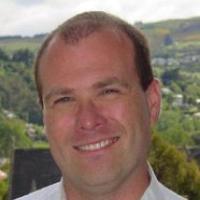Physics & Astronomy Space Plasma Seminar - Dr. Craig Rodger, Uni. of Otago
Title: "Observations of EMIC Wave-Driven Precipitation From the Radiation Belts"
Abstract: It has long been recognised that electromagnetic ion cyclotron (EMIC )waves should be able to pitch angle scatter energetic electrons from the radiation belts, causing them to be lost into the polar atmosphere. However, there has been rather limited experimental evidence demonstrating these losses are taking place. In particular, there has been significant uncertainty regarding the electron energies likely to be affected, and thus the significance of EMIC-losses to the dynamics of the outer radiation belt.
We use POES MEPED satellite data and the AARDDVARK subionospheric network to characterise the electron precipitation. EMIC wave activity is confirmed by the search coil magnetometers located in both hemispheres. We also use case studies from the Van Allen Probes to identify the nature of the EMIC waves in space, and to confirm the linkage between EMIC waves and precipitation seen by POES and AARDDVARK.
Building on these case studies, we undertake a statistical examination of a large set of hundreds of POES-observed precipitation events with properties consistent with EMIC generation. Our research has specifically examined the minimum energy of the electron precipitation in these events. These energies are considerably lower than the relativistic or ultra relativistic levels often predicted by theory, with values commonly as small as a few hundred keV.
Professor Craig Rodger is visiting Dartmouth through the Matariki Network of Universities, which Dartmouth and Otago are both members of. He is the leader of the Space Physics and Atmospheric Radio research group in the Physics Department, University of Otago, Dunedin, New Zealand. Craig operates ground-based detectors in Antarctica, New Zealand and the Arctic, and is the co-PI of the AARDDVARK network.
